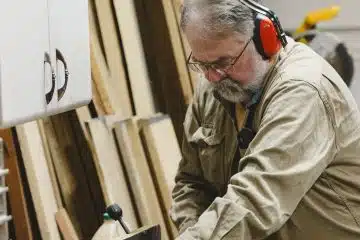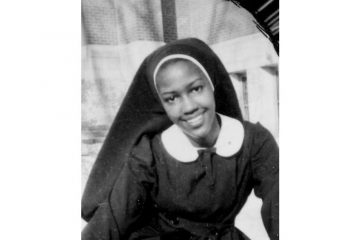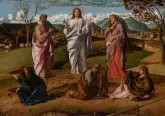The Catholic Moment: A Catholic moment in history
February 18, 2011
The United States has a rich history of freedom. Still, every nation’s history is filled with shadows and light; great evils have been tolerated and even perpetuated. February is Black History Month, and 2011 marks the 150th anniversary of the start of the Civil War. The presence of slavery and its legacy cast a shadow over a country that still holds out at light of liberty to so many.
Though not perfect, the Archdiocese of Cincinnati has a rich history too. A light in that dark era of slavery and the Civil War was Archbishop John Baptist Purcell, who was appointed bishop in 1833 and archbishop in 1850. His record was mixed. Early in his episcopacy, he did not favor emancipation; he criticized abolitionists for their extremism and anti-Catholicism. He spoke only of preserving the Union and avoiding violence, even if compromise was necessary.
Archbishop Purcell had to attend prudently to the needs of his flock, including an influx of Irish Catholics, who were the lowest class in society and who feared that free blacks would compete with them for jobs, and so for many years did not publicly support emancipation. One is tempted to think of him as slow to act and not at all a champion of racial equality.
Still, Archbishop Purcell’s own sentiments can be gleaned from an 1838 speech he gave in his hometown of Mallow, Ireland. He lamented the inconsistency between the “admission in the American charter which said ‘that all men were born free’ and that the existence of slavery in that country.”
He condemned slavery in principle as degrading, calling it a “moral virus,” not introduced by Americans; still he felt that for prudential reasons such an evil could not be eliminated easily.
For nearly 25 years, he was silent on the subject of slavery. In May 1862 Archbishop Purcell journeyed to Rome. While there, he met Bishop Dupanloup of Orléans, who sharply criticized American slavery. The encounter profoundly influenced Archbishop Purcell, because he “got his Irish up.” Upon his return, he gave a lecture, “Impressions of Europe,” at Pike’s Opera House.
During the lecture, Archbishop Purcell responded to European criticisms of America, arguing that despite its imperfections, the American government was still superior to anything Europe offered. Europeans criticized the discrepancy between the Constitution’s tolerance of slavery and the Declaration of Independence.
Archbishop Purcell said: “…we shall have crushed the rebellion and restored Union and peace, we will revise the Constitution, place this instrument and the Declaration of Independence in harmony with one another…”
He continued that the South “…kept millions of men in bondage, forbidding them to marry, which St. Paul calls a doctrine of devils, and forbidding them to be educated.”
He showed how the South had been uncompromising and how the North could have declared the slaves emancipated and provided them with arms, but for the sake of humanity refrained. In contrast, the South was “imitating her perfidious friends in Great Britain,” who had persecuted, subjugated and starved Archbishop Purcell’s own people.
His speech drew hostile criticism from Catholic and non-Catholic quarters. Archbishop Purcell prudentially held his tongue, but The Catholic Telegraph began its move from opposition to emancipation to favoring abolition of slavery. The church in Cincinnati began taking a stronger stand in favor of the dignity of the human person. This stand emerged, not from politics but from principle, and from Archbishop Purcell’s sense as an Irishman of solidarity with an oppressed people. The church found her voice to speak up against a great evil.
We are the heirs to that legacy. In history, the church is filled with light and shadows. Archbishop Purcell’s example teaches that in the face of evil, one cannot forever remain silent. In January, people march against the injustice of abortion. Throughout February we remember the contributions made to our country by those once deemed by the courts to be “property.”
Archbishop Purcell reminds us that it is the task of all Catholics to affirm that self-evident truth that “all men are created equal; that they are endowed by their Creator with certain unalienable rights, that among these are the right to life, liberty, and the pursuit of happiness.”
Father Fernandes is an assistant professor of moral theology and dean of Mount St. Mary’s Seminary.













